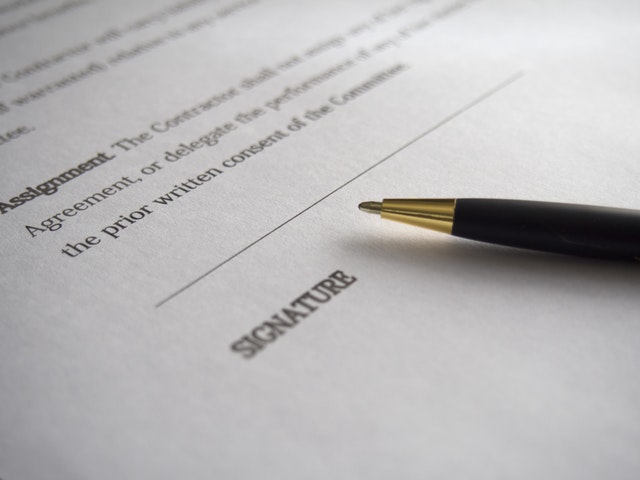While it may sound easy to be a landlord, successfully managing your own investment properties requires the mindset of a business professional.
Without experience, it can be easy to quickly lose money, time, and sleep by making common landlord mistakes
This shouldn’t discourage you from investing in a rental property. Most mistakes will help to teach you how to be more successful in the future.
But you can improve your learning curve by watching out for these common mistakes to mitigate your risks.
As a landlord, insurance is crucial for the protection of your property and reducing your liability. Not having any insurance or having the wrong insurance will be expensive down the line. Make sure your coverage is sufficient per occurrence. There are two types of insurance to apply for:
Property insurance protects you from paying for the damages in case of fortuitous events, such as a fire, flooding or vandalism.
This protects your property and business against lawsuits, such as a claim of negligence or a result of tenant injuries. A safety net against expected expenses is reassuring.
 As a landlord, you might be tempted to skip a thorough screening procedure to fill in a vacant unit. However, careful scrutiny is necessary to prevent eviction issues in the future. Even if the potential tenant is excited to move and have the required deposits, follow your system. Here’s a running list of things to check for:
As a landlord, you might be tempted to skip a thorough screening procedure to fill in a vacant unit. However, careful scrutiny is necessary to prevent eviction issues in the future. Even if the potential tenant is excited to move and have the required deposits, follow your system. Here’s a running list of things to check for:
As a landlord, it’s your duty to provide a rental property in good condition. Putting off maintenance issues will increase your cost of repair in the long run. Avoid this pitfall by setting aside a budget for repairs and maintenance to avoid getting caught off-guard by unexpected expenses. Here are areas to focus on when conducting regular maintenance:
 You need to follow the policies stated in your leasing agreement. This will help you manage potential conflicts at a later time. If the tenant can see that you’re relaxed in the enforcement, they won’t take the agreement seriously. Set a standard and expect it to be followed.
You need to follow the policies stated in your leasing agreement. This will help you manage potential conflicts at a later time. If the tenant can see that you’re relaxed in the enforcement, they won’t take the agreement seriously. Set a standard and expect it to be followed.
As a landlord, you might be tempted to advertise your property with a high rental rate. After all, a high income is preferable as it allows you to pay off the regular expenses of property maintenance. However, pricing too high can result in a unit remaining vacant for a long time. Make sure to check the market and price fairly. Here are other reasons an overpriced property can be damaging to your rental business:
This is self-explanatory as potential tenants are turned off by the rental price. You’ll have a limited pool of potential tenants.
Because the rent is high and there are limited applicants, high-risk tenants will be drawn to your property. They’ll pay the initial high deposits but might eventually fail to pay. They know your options are limited, and because of this, you might skip the screening process.
Your competitors will gain a larger pool of tenants to choose from. High rent discourages potential renters. As a result, your property may remain vacant for long.
As a landlord, you want to reduce your property’s expenses. This means that you might be tempted to skimp on hiring a good property manager.
If you do decide that you need a property manager, you might select a company that doesn’t provide good value for your money.
A good property manager will minimize the stress of managing a rental property business. Here are other helpful services they offer:
 As a landlord, it’s important to be financially liquid. You never know when emergency repairs will come up. Sometimes, there will also be rental gaps that you’ll need to think about. You must have enough cash to meet your monthly mortgage payments, insurance and taxes. Here are budgets to keep in mind:
As a landlord, it’s important to be financially liquid. You never know when emergency repairs will come up. Sometimes, there will also be rental gaps that you’ll need to think about. You must have enough cash to meet your monthly mortgage payments, insurance and taxes. Here are budgets to keep in mind:
You’re bound to be busy attending to the details of running your rental property. However, your tenants should be your priority. After all, your income stream comes from them. Check in regularly with your tenants to ensure that they’re happy staying in your property. Here are ways to develop a good professional relationship with your tenants:
As a landlord, you’re expected to be well-versed in your state and local laws pertaining to your landlord duties. Failing to do so can result in penalties and losses. You’re required to follow all legal procedures to safeguard your rights as well as those of your tenants. Here are some regulation categories you need to pay attention to:
As a landlord, having a solid leasing agreement is for your own legal protection. It’s essential that a written contract between you and the tenant exists. The tenant must agree to the terms and conditions as well as the policies contained in the agreement. This document is binding, and if court proceedings happen, the lease agreement is presented as proof. Here are vital clauses that should be present in your leasing agreement:
If you are unsure about how to be successful as a new landlord, or fear that you may not have the time necessary to perform the job well, consider working with a professional property management company.
Interview several companies, check out their backgrounds and references and ensure that, like your tenants, you understand and agree to the terms of a contractual relationship.